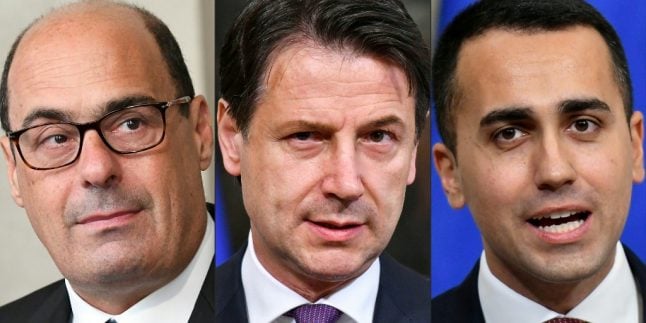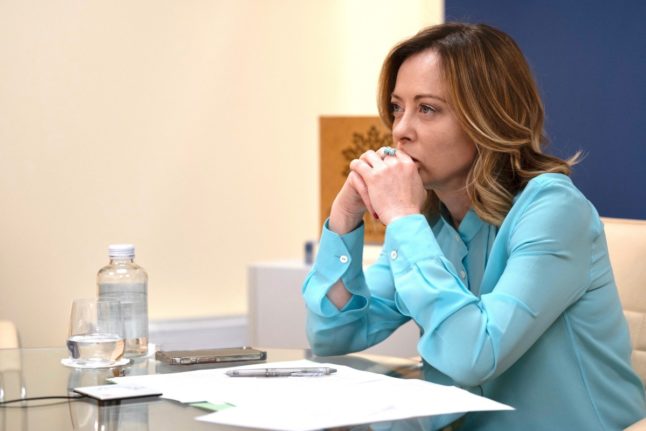Incoming Prime Minister Giuseppe Conte presented his cabinet after hammering out a deal between former foes from the anti-establishment Five Star Movement (M5S) and the centre-left Democratic Party (PD).
He said it would work with “intense passion” to revive spirits in Italy, which is plagued with high debt, high unemployment and widespread dissatisfaction over immigration and the country's rapport with Brussels.
READ ALSO: Four key economic challenges facing Italy's new government
Cabinet members will take the oath at 10 am, ushering in a new political era after the collapse of the populist coalition in August. The new coalition will have to be approved by both houses of parliament, possibly by the end of the week, to ensure it has a majority.
Luigi Di Maio, head of the Five Star Movement (M5S), will be foreign minister, while Roberto Gualtieri from the centre-left Democratic Party (PD) has been given the finance post in the eurozone's third largest economy. Gualtieri, who has chaired the European Parliament's committee on economic and monetary affairs for the past five years, will have to move fast to deal with Italy's most pressing issue — the upcoming budget.
READ ALSO: Here is Italy's new cabinet in full
The 21-member cabinet will have seven women ministers.
Conte gave the interior portfolio to Luciana Lamorgese, a former Milan security chief, while Lorenzo Guerini, former head of the parliamentary intelligence services oversight committee COPASIR, will be defence minister.
Conte — who had been a compromise prime minister for the League-M5S coalition — will continue in the top job.
ANALYSIS: How Italy's prime minister survived the collapse of his own government

Photo: Andreas Solaro/AFP
The M5S and PD agreed to put aside their differences to prevent the country heading to the polls after strongman Matteo Salvini pulled his hard-right League from government last month while MPs were mostly at the beach.
Italian markets have welcomed the new government, with Milan's FTSE Mib up nearly 1.7 percent after the announcement. The spread between Italy's bond yields and those of rock-solid Germany also narrowed to 146 from 158, indicating investor confidence over the political outlook.
But the road to a deal has been rocky, with bickering over posts and the government programme, and political observers have warned that the nascent coalition may not run its full course to 2023.
Italy is notorious for rapid political turnover: Conte's new government will be the 67th in just 73 years.
FOR MEMBERS: Why do Italy's governments collapse so often?
“Governing will be trickier than agreeing a coalition,” Berenberg economist Florian Hense said in a note. “The upstart Five Stars have been the bane of the established PD for the past six years. Conte's ability to broker compromises between the parties will be even more crucial than it was for his previous coalition.”
The incoming government's first challenge will be submitting the 2020 budget to parliament by the end of September, and then to Brussels by October 15th. It will need to find over €20 billion in savings to comply with EU rules and avoid a rise in VAT which would hit the country's poorest the hardest and could see debt-laden Italy slide back into recession.
The outgoing government quarrelled bitterly with the European Commission over its big-spending plans, but analysts said the new M5S-PD tie-up was expected to strike a more conciliatory tone and may therefore win some flexibility.
Hense damned the new team with faint praise, saying it was “unlikely to implement the serious pro-growth structural reforms that Italy needs in the long run. But it probably will not make the situation worse.”



 Please whitelist us to continue reading.
Please whitelist us to continue reading.
Member comments